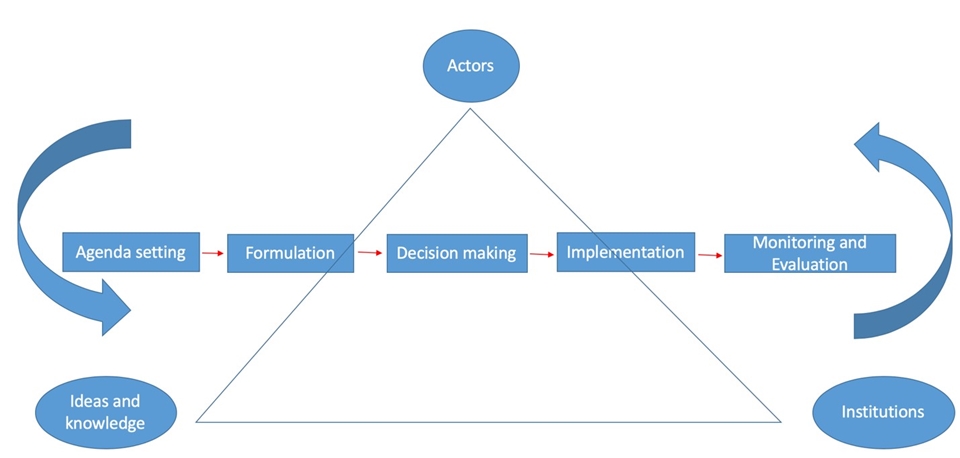Case Study Researches on Public Policies in Asia and the Pacific
Background
The Global Action Plan of the UN Decade of Family Farming 2019-2028 (UNDFF) aims to provide a detailed guide on the policies, programs, and regulations formulated to ensure the inclusion and economic capacity of family farmers, putting their diversity at the center of sustainable development. This general plan of actions would be fully made operational at the country and local levels when the corresponding enabling policies are present. To effectively strengthen family farming in Southeast Asia, it is necessary to understand where family farming is in terms of policy support covering the integrated phases of the policy cycle namely: problem analysis, planning, implementation, and monitoring and evaluation.
The International Fund for Agricultural Development (IFAD) and the Food and Agriculture Organization (FAO) will use the results from policy researches to develop a modular program that will contribute to the implementation of the main objective of the UNDFF and serve as a tool for countries to develop public policies for the support of family farming. In particular, the program will contribute to Pillar 1 of the GAP: Develop an enabling policy environment to strengthen family farming. It will assist state and non-state actors to increase their understanding of the public policymaking and family farming-related policies. This will also be a response to a recurring demand by member countries and family farmers' organizations to IFAD and FAO to provide support in the public policy processes.
The project period is from 27 April to 31 October 2020.
Objectives
To provide a comprehensive analysis of the public policy trends related to the promotion and implementation of family farming, SEARCA embarks on an analysis of public policies in the Philippines, Indonesia and Vietnam. The objectives of this research are to:
- assess existing public policies and programs related to family farming in terms of operations, production, drivers, and challenges across the phases of policy development cycle, and
- determine the gaps, opportunities, and lessons along each stage of the policy cycle to develop context-specific suggestions for improving the policy development process.
Framework
To better understand the policies on family farming, it requires good understanding on how these policies are being developed and implemented on the ground. In any public policy process, aside from incorporating the social needs and interests of the stakeholder/communities, its design should be bounded by related legislation to ensure coherence of policies.
Since it is the interest of the project to link the policy cycle model to concrete policies and programs targeted to family farming in regions and countries, the figure below shows the policy cycle framework to be used in the assessment. Governing the policy cycle stages are the ideas and knowledge of the key actors and institutions who are a major part of the policy formulation.
 Figure 1. The policy cycle model (adapted from Howlett et al., 2009)
Figure 1. The policy cycle model (adapted from Howlett et al., 2009)
Following this policy cycle model, an assessment will be conducted that will specifically look at the:
- Existing policies that cater to family farming and the processes involved in developing the policies;
- Implementation of family farming activities within the existing policies at various modalities and scale; and
- Improvements for enhancing the policies to further support the implementation of family farming.
Scope of Work
The policy research will provide the basis for a sound policy and decision-making process to better support family farming activities in the said countries. The public policies that will be the focused of the case studies are:
- RA 7607: Magna Carta for Small Farmers (Philippines)
- Quo Law: Law of the Protection and Empowerment of Farmers and Fishers (Indonesia)
- Nong Thon Moi: New Agriculture and Rural Development Program (Vietnam)
Expected Outputs
The outputs of research will be presented as a background paper, which will consist of individual-country-case studies and a comparative analysis of the cases.
The individual-country-level cases will have the following features:
- Linear and objective narrative of the policy development by collecting and checking available data about each stage and the policy cycle, describing, and analyzing key variables that are involved in each stage of the process, e.g., economic, environmental, and social factors considered.
- Based on data that shall be collected following the proposed semi-structured script of guiding questions allowing a minimum level of standardization among the cases.
- Descriptive and analytic, connecting technical analysis of policies/programs to their socio-economic and political context. e.g., using assets (land, labor, capital), context (access to agricultural practices, access to infrastructure), and strategies (technology adoption, market integration and socio-economic integration)
The three country-level cases will be compared to look for commonalities and differences across, specifically noting the constraints and challenges as well as the good practices for each case along the public policy cycle development and implementation. The comparative analysis will cover the following:
- Economic, environmental, and social factors considered in the policy stages.
- Indicators that contributes to the success of family farming which includes assets (land, labor, capital), contexts (access to agricultural practices, access to infrastructure), and strategies (technology adoption, market integration and socio-economic integration).
